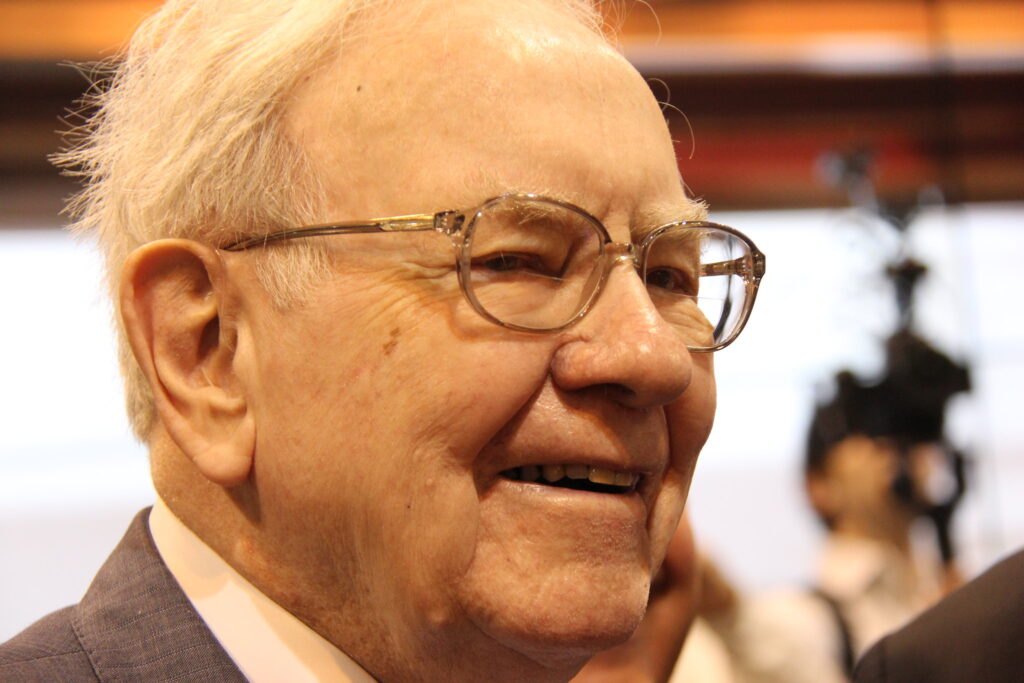With Warren Buffett’s stunning announcement that he will retire by the end of the year, investors are wondering what’s in store for Berkshire Hathaway (BRK.A 0.18%) (BRK.B 0.09%). Vice Chairman Greg Abel is taking over, but will Berkshire Hathaway be the same?
A decade ago, Charlie Munger, Buffett’s decades-long business partner, actually addressed his vision of what would happen when Buffett steps down. It’s worthwhile to read what he had to say, which is still incredibly relevant and timely today.
A 50-year celebration
Buffett has been at the helm of Berkshire Hathaway since 1965, and he has been writing his annual shareholders’ letter since 1977. Munger was Buffett’s business partner and mentor throughout that time until he died in 2023, and he added his thoughts to Buffett’s just one time, in 2014, at the 50th anniversary of Buffett’s leadership.
Image source: The Motley Fool.
He used that opportunity to share his thoughts about why the company was so successful, and he also gave himself the task to “predict whether abnormally good results would continue at Berkshire if Buffett were soon to depart.” He gave a quick “yes,” for the following reasons:
- The company owns a large subset of strong businesses with high momentum that all have durable competitive advantages. That’s the kind of sentence you would expect to hear straight from Buffett, and since Buffett credits Munger with shaping his investing style, it’s no surprise the two think similarly.
- The company’s railroad and utility investments provide it with easy ways to add assets that multiply their opportunities.
“Provided that most of the Berkshire system remains in place,” he wrote, “the combined momentum and opportunity now present is so great that Berkshire would almost surely remain a better-than-normal company for a very long time even if (1) Buffett left tomorrow, (2) his successors were persons of only moderate ability, and (3) Berkshire never again purchased a large business.”
Of course, he goes on to say that Ajit Jain and Greg Abel are not only moderate but “world class,” or even “world leading,” and that “in some important ways, each is a better business executive than Buffett.” He also notes that he doesn’t think either would leave Berkshire for another company, and that neither is looking to make any changes at Berkshire. As for buying new businesses, he felt that the company would find plenty of ways to deploy its cash buildup.
In other words, even 10 years ago, the company was set up to continue as it has for years even without Buffett in charge. Now that this has been set in motion, things should continue as planned.
Ten years later
Most of this applies today. Interestingly, Jain and Abel were only appointed as vice chairmen in 2018 and only took questions on the management panel at Berkshire Hathaway’s annual meeting starting in 2021, when Abel was named as Buffett’s successor. But they were in these upper management roles at least 10 years ago, and already then, it was clear, to Munger at least, that they weren’t going anywhere and weren’t changing things at Berkshire Hathaway.
At the time of Munger’s letter, Berkshire Hathaway had a cash buildup of about $60 billion, which is about a sixth of what it is today. Since that time, the company has made use of its cash with “desirable acquisitions,” such as battery company Duracell, insurance company Alleghany, and toy company Jazwares.
Buffett’s made two things clear recently that give some color as to what’s going to happen with today’s mammoth cash buildup. One, that sometimes there are tons of opportunities, and most of the time, there aren’t. He sees no reason to deploy the company’s capital, which is his job as a money manager, to buy subpar offerings. Two, he has full confidence in Abel’s ability to act quickly when opportunities do present themselves.
Although investors love to dissect the company’s equity portfolio move by move, Buffett has made his name by waiting patiently for truly excellent opportunities and taking decisive action when they arise. “We are impartial in our choice of equity vehicles, investing in either variety based upon where we can best deploy your (and my family’s) savings,” he wrote this year. “Often, nothing looks compelling; very infrequently, we find ourselves knee-deep in opportunities. Greg has vividly shown his ability to act at such times as did Charlie.”
Abel may not bring the Buffett brand to the table, but the actual functioning of Berkshire Hathaway and the value it brings to shareholders isn’t likely to change when Buffett closes the curtain.


